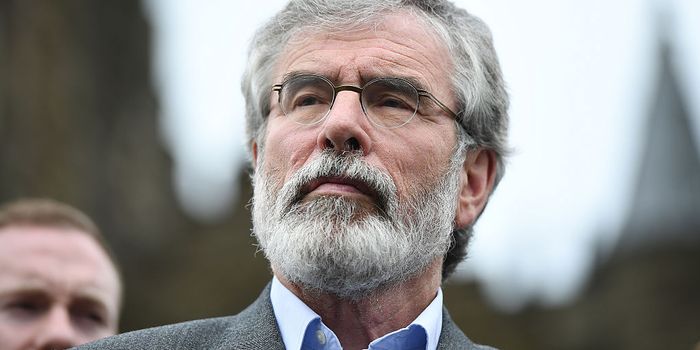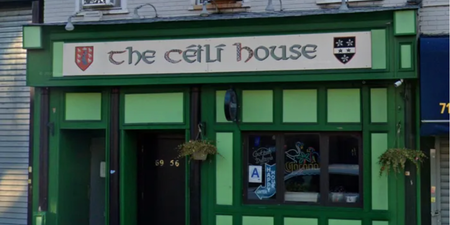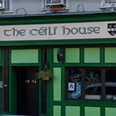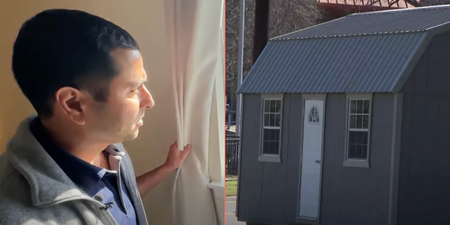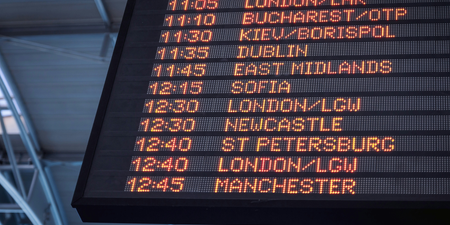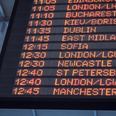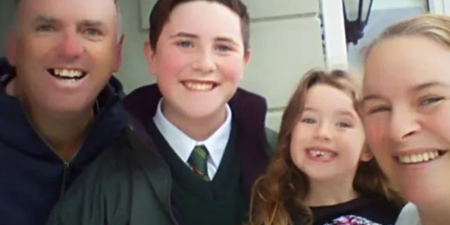“Whether it happens while I am party leader or not, it will happen”.
Following Britain’s vote to withdraw from the EU many questions have arisen around relations between the North and South of Ireland.
Northern Ireland has received considerable financial support from the EU since the peace process – an estimated 1.3 billion since 1995 – and concerns have been raised on what Brexit means now in terms of patrolling the border between the North and the Republic.
Ahead of the EU referendum, Martin McGuinness said that Britain opting to leave would create a “democratic imperative” for Northern Ireland to hold a referendum on UK membership.
In Scotland, every single local authority voted to stay in the EU, with the Remain side receiving 62 per cent of the overall Scottish vote.
In a statement on Friday, Nicola Sturgeon, Scotland’s first minister, stated that a second referendum on Scottish independence was now “highly likely”.
“We will seek to enter into immediate discussions with the EU institutions and the other EU member states to explore all possible options to protect Scotland’s place in the EU”.
In an interview with the BBC’s Sunday Politics Scotland, Sturgeon said that the Scottish Parliament could try to block the UK’s exit from the European Union.
During a press conference on Friday following the result, Enda Kenny announced that the Dáil will be recalled today to discuss the impact Britain’s withdrawal from the EU will have on Ireland and that there were more pressing issues than a border poll that needed to be addressed.
In an exclusive interview following the result, we asked Sinn Féin leader Gerry Adams about his views on the likelihood of the introduction of a physical border, the impact the result has for Irish people in the North, and if he truly believes a united Ireland is tangible during his tenure as leader.
How do you see Brexit affecting the island of Ireland – Who will suffer most?
Last week the Department of the Taoiseach gave a confidential briefing to the parties in advance of Brexit. What was and is clear from that briefing is the interconnectedness between the EU and both economies on the island. Every sector in our society – tourism, trade, the economy, health, climate and the environment, farming and rural issues, equality and workers rights issues – are all interrelated and interdependent on the EU.
The Irish government has already indicated that it believes that it will need as much as three billion euro to manage Brexit. That’s three billion euro less it will have for projects, investments and other initiatives it hoped to have in the next five years.
The north will lose a significant amount of EU money. Will the next Tory Prime Minister be prepared to make up that loss? I doubt it.
Will we see the return to of a physical border – What is the likelihood that this can actually be afforded?
Currently, we have a soft border. It is all but invisible. Where once customs posts, and then British Army checkpoints or cratered and blocked roads were the order of the day, now you can travel back and forward across the border without hindrance.
That will end. To what extent is difficult to say. The border will now be the EU’s only land frontier with a non-EU member. As the Brexit divorce takes shape and the economic, political and social connections are severed the EU and Britain will have to take account of this. What will replace it no one knows at this point but it’s difficult to see how passport controls whether in the north, as people leave or in Britain as they land, whether by sea or air, will not be significantly tightened.
The leave campaign was largely fought around the issue of immigrants. Would a right wing British conservative government be willing to leave a back door open for immigrants to perhaps enter through?
And what of trading goods? And the taxes they raise for Britain? All of that has to be monitored and only so much can be accomplished by technology
Brexit has repercussions for Ireland, north and south – What would you say to those who live south of the border that do not feel like this will affect them?
The future for everyone on this island will be impacted by Brexit. There is no escape from it.
There are some who believe that Brexit could benefit the Irish state in terms of the relocation of jobs and future Foreign Direct Investment. But those arguments are at this time unquantifiable.
What we do know is that there are currently tens of thousands of jobs tied to the EU market and to projects dependent on EU funding. They are at risk as this Brexit divorce unfolds.
At an economic, community and social level, the island of Ireland remaining within the EU is to everyone’s advantage. That should be a clear objective in the time ahead.
Of course, that should not blind us to the problems within the EU.
The unaccountable nature of much of the EU bureaucracy and the decision-making process that is often distant from citizens in member states is part of the reason for the Brexit vote.
The treatment of Greece and the imposition of austerity policies on that state and others have also led to anger and frustration at the EU.
The agreement with Turkey over refugees and the failure of the EU to respond to this humanitarian crisis in a reasonable fashion has undermined its credibility.
Sinn Féin has long been critical of aspects of the EU project and in particular of the profound lack of democracy at its core.
We do not support a two-tier European Union in which a small number of large member states take it upon themselves to dictate economic or other policy to smaller states.
Sinn Féin’s approach to the European Union can best be described as a critical engagement. Where measures are in the interests of the Irish people, we support them and seek to further them. Where they are not, we oppose them and campaign for change.
Nor do we support the drive for further centralisation of powers in the hands of an unelected EU bureaucracy or for an EU super state. Irish citizens do not want to live in a province of such a state where technocrats take decisions with no accountability.
For this reason, Sinn Féin has resisted any attempt to undermine or dilute Irish neutrality.
Irish republicans want a different kind of Europe – a Europe that is democratically accountable and transparent and responds to the needs and desires of its citizens.
We are for a social Europe; a Europe of equals, of partnership and solidarity, in which member states, at times of adversity, work together in the spirit of co-operation.
The EU should tackle problems we face collectively, and work together to build opportunity and prosperity for citizens of the region.
We believe that Ireland’s place is in the European Union – but the European Union needs to change.
The Brexit vote presents an opportunity to advance these objectives, to transform the EU into something better and to advance the desire for Irish re-unification.
This year we celebrate the centenary of the 1916 Rising. It was hugely popular. There is an obvious desire among most citizens to undo the calamity that is partition and to reunite Ireland. It would be in our economic and political interests.
The task of everyone, therefore, must be to agree policies and strategies that can minimise any problems that will arise as a consequence of Brexit and to use this crisis, if we are able, to create a new Ireland and a new EU.
Do you think a united Ireland will be achievable in your tenure as leader?
If we work hard enough and attract sufficient support it is possible. But whether it happens while I am party leader or not it will happen and Sinn Féin’s task in the immediate time ahead is to:
- Press for a border poll.
- Demand that the Irish government, as the co-equal guarantor of the Good Friday Agreement – defend the interests of the island of Ireland at the EU Council meeting this week and in any future negotiations and that it support a border poll.
- Insist that the Irish government defend the Good Friday Agreement and its political institutions, including the cross-border bodies.
- Ensure that the equality and human rights elements of the Good Friday Agreement are protected.
- Sinn Féin will seek urgent meetings with the Irish government, the European Institutions and also our counterparts in Scotland to discuss how we all move forward.
- Grasp the opportunity to redesign the constitutional and political future of the island of Ireland.
To achieve these goals we need as a party to increase our political strength, as well as to build alliances with others of a like mind. There is, as Bobby Sands once said, a place for everyone in doing this. So, to all of those interested in Irish unity join with us in campaigning for a border poll.
‘Modelling Irish Unification’, the international study published in March found that economic integration of the North and South would potentially boost the economy by over €30 billion. How do you feel about the news coverage this research received?
It was largely ignored by the mainstream media and by the political system in the south. None of which is to be unexpected. Partitionism is ingrained into the body politick in the south. You just have to look at the response of the Irish government to Sinn Fein’s call for a border poll.
Partition fractured the economy and society of Ireland 100 years ago. The adverse consequences of that continue to plague our island. Now we will have one part of the island inside the EU and the other outside. This is not a good scenario nor is it one that the people of this island voted for. A clear majority voted in the referendum to remain within the EU. That desire is to be ignored because an English vote carries with it a veto. An English vote is worth more than an Irish vote. This is unacceptable.
Sinn Féin believes that the people of this island are best placed to run our own affairs in our own interests.
There is now a democratic deficit as a result of Brexit and that means there needs to be a border poll to determine whether the island of Ireland is part of Europe or is not.
The two governments have said no. The British position is understandable. They don’t want to see the breakup of the United Kingdom.
The Irish government position does not in my view reflect the wishes of the majority of the people of this island.
The Irish government needs to be thinking nationally – not in a 26 county sense – but with an island wide view.
The ‘Modelling Irish Unification’ report indicates what is possible. It concluded that there could be significant long-term improvements in the economies of both the North and the South.
Three unification scenarios were presented, with the most aggressive estimating a €35.6billion boost in an all-island GDP in the first eight years of unification.
It also found that there would be a long-term improvement in the northern economy as a result of the removal of currency, trade and tax barriers which currently impede economic growth.
At the same time, the south would benefit from barrier-free access to the northern Irish market.
By modelling three separate unification scenarios, the researchers showed a long-term improvement of GDP per capita in the north of 4% to 7.5% while the south would see a boost of 0.7% to 1.2%.
This is evidence that unity is an economically viable project.
Does the north of Ireland need EU money for its existence?
No. But the absence of EU funding for community and infrastructure projects; the inability of the north to sell itself as a doorway into the EU to foreign and direct investors; the loss of financial supports for the farming and rural community will all have an adverse impact on the local economy and especially on cross-border trade.
What other ways do you believe it will impact the island of Ireland?
Brexit creates uncertainty and instability. Already EU institutions and leaders are calling for a quickie divorce because of a fear that a long drawn out process could be damaging. The EU is inextricably linked to every sector of our society and economy. Upending that presents real risks. Martin McGuinness was not understating the problem when he described this as a crisis.
